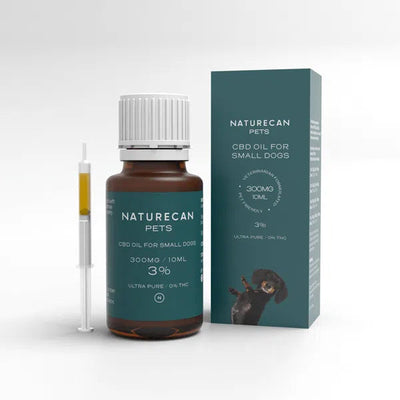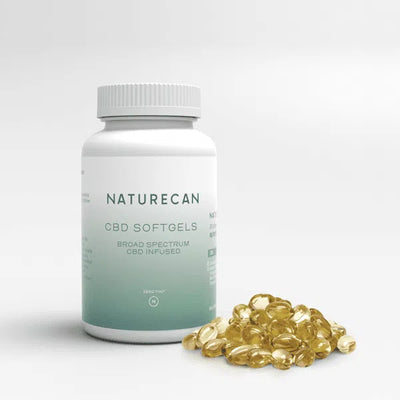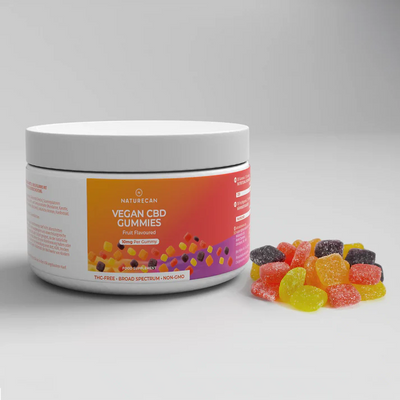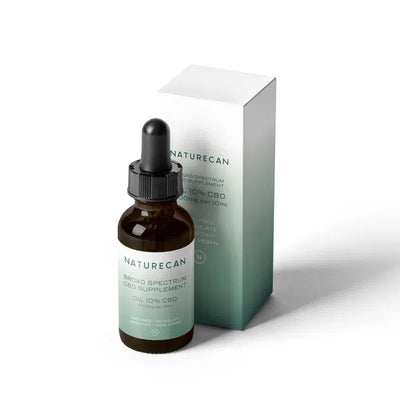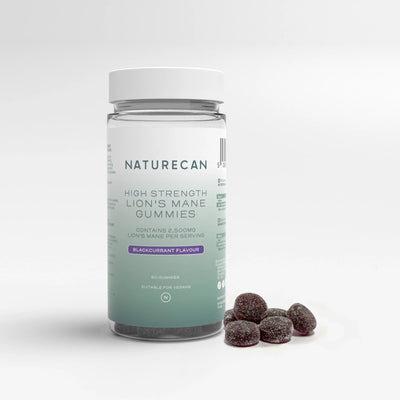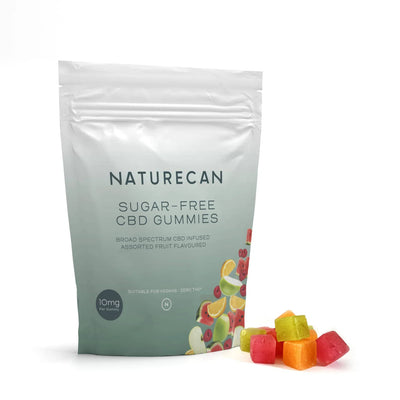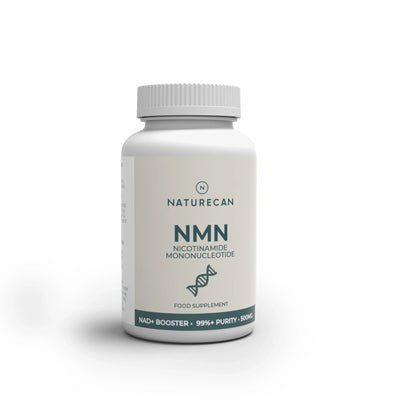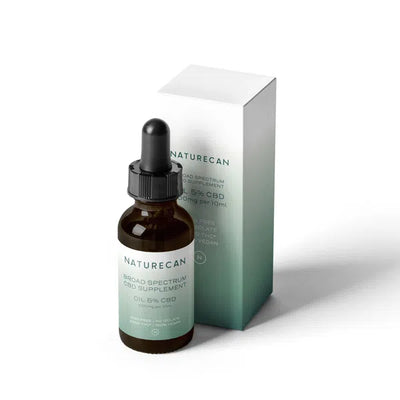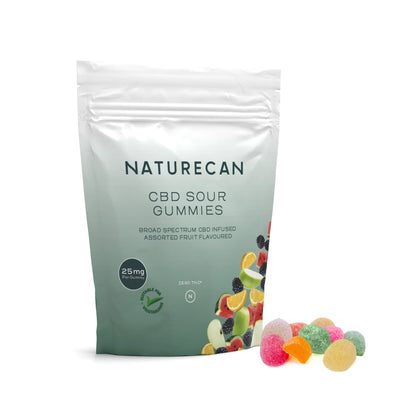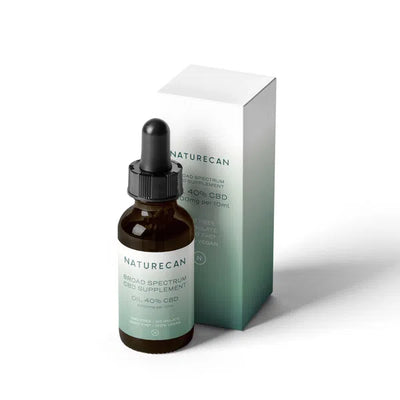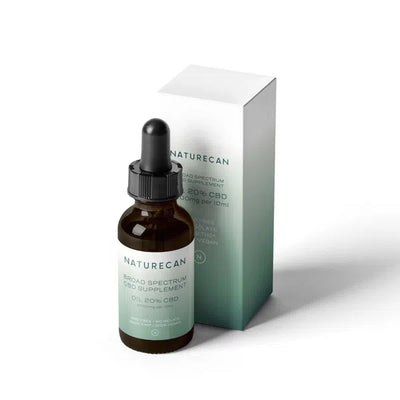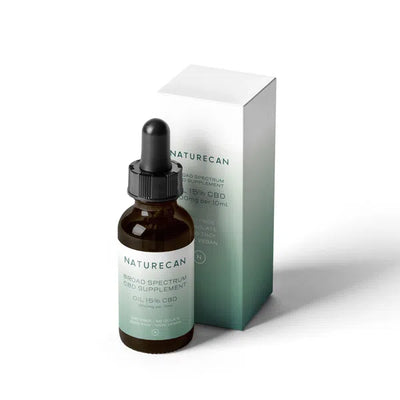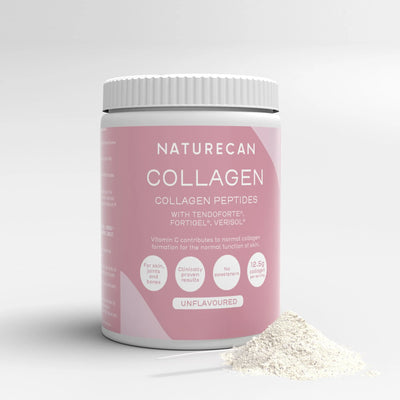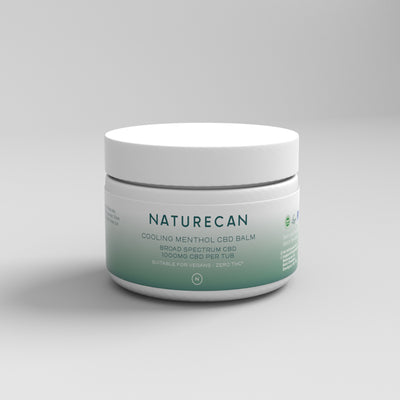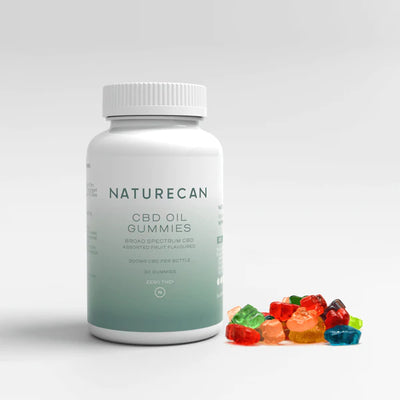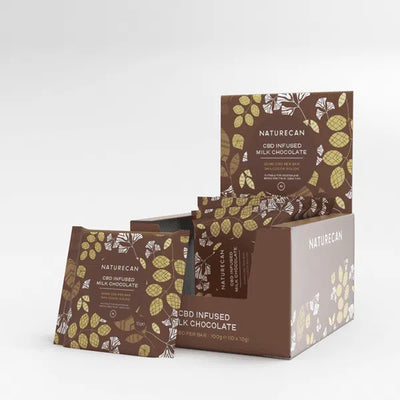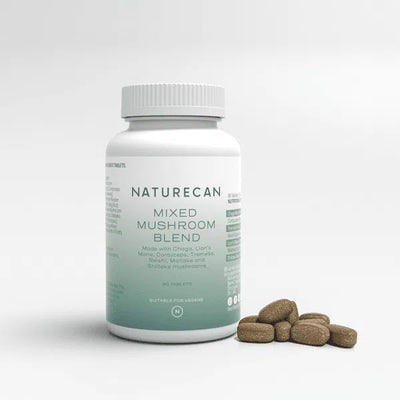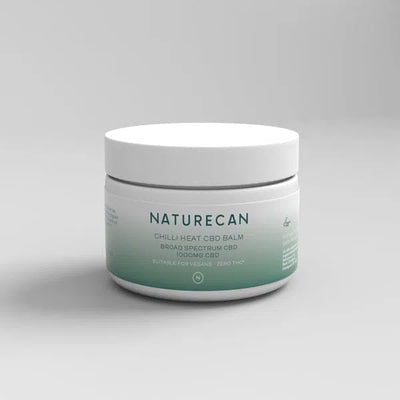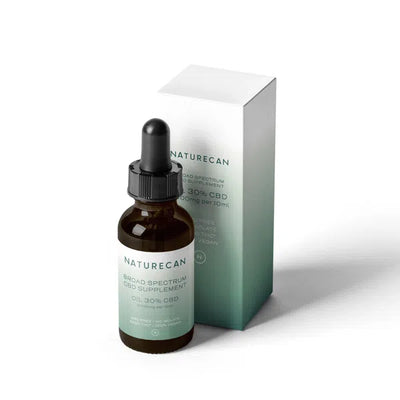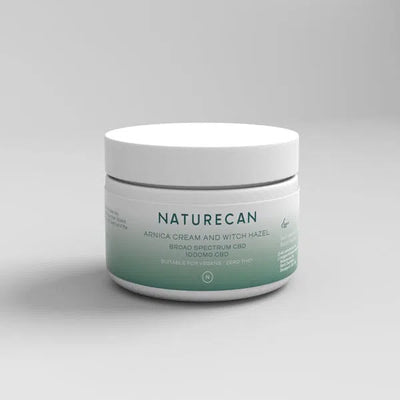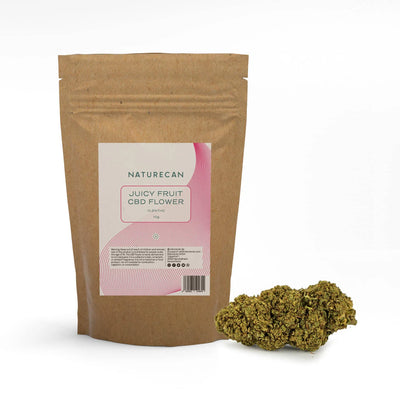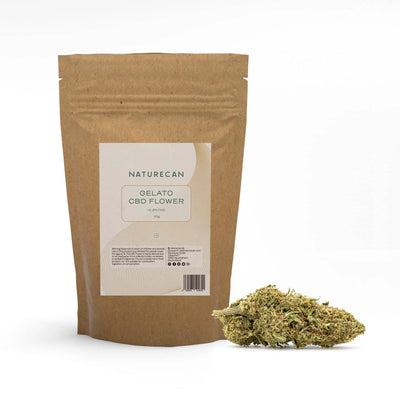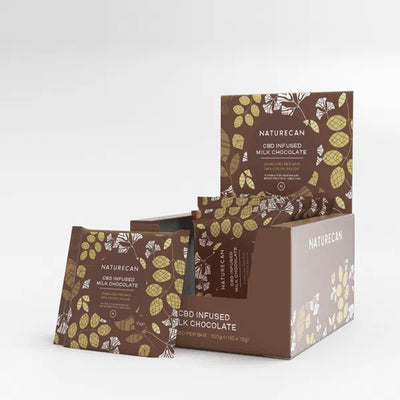
CBD for Horses
Is it safe?
What is it and how does it work?

Summary
● CBD (cannabidiol) is an active compound present in the hemp plant (Cannabis sativa).
● It is safe for use in horses and other pets.
● CBD is non-intoxicating, which means it cannot induce a “high” feeling.
● Studies suggest that CBD may improve pain, inflammation, and anxiety in horses.¹
Written by Zia Sherrell and reviewed by our qualified expert, Paul Holmes, Scientific & Regulatory Affairs Manager at Naturecan, BSc Medicinal and Biological Chemistry, Member of UKAS/FSA CBD Food Product Approval Expert Group
CBD for Horses
CBD is a popular hemp plant extract that many people find helpful for a variety of conditions. But did you know that this all-natural plant compound also has wellness applications for animals?
While you may think that CBD use is limited to cats and dogs, its therapeutic properties also extend to other animals, including horses.
Owners may use CBD for horses experiencing stress, anxiety, injuries, or inflammation.
Learn more about how you can use CBD¹ for horses and how this hemp flower extract could support your equine’s wellness.

Shop CBD for Horses
How does CBD oil for horses work?
In short, CBD works by interacting with the body’s endocannabinoid system (ECS).
Scientists have been investigating the Endocannabinoid System ECS and cannabinoids like CBD since around 1930,² when they first noted the unique structure of the hemp plant’s compounds. Following decades of research, scientists began to understand the essential link between cannabinoids and various bodily systems.
The ECS is a complex cell signalling network found in all animals, from sea urchins to horses.
Animals depend on the ECS to regulate homeostasis or balance within their bodies.
Experts now understand that the ECS helps regulate mood, appetite, pain, and other essential functions.
The ECS consists of internal cannabinoids called endocannabinoids, cannabinoid receptors, and enzymes.
Endocannabinoids are produced naturally within the body and are not related to cannabis use. The hemp plant contains phytochemicals that can activate receptors in the ECS and mimic the actions of endocannabinoids.
There are two types of cannabinoid receptors:³
● CB1 receptors are found primarily in the brain and central nervous system.
● CB2 receptors are typically cited in the liver and immune system.
The interaction between the different parts of the ECS is complex, and research is ongoing. Currently, we understand that CBD interacts indirectly with the CB receptors and does not bind to them, meaning that it cannot cause intoxicating effects.
CBD also seems to affect the enzymes that typically break down endocannabinoids. If these endocannabinoids are not broken down, they are more available to the body.
Some research indicates that CBD communicates with TRPV1 receptors⁵ that control pain awareness and inflammation. Other studies show that it could inhibit glutamate levels,⁴ responsible for the sensation of pain.
CBD helps maintain a flow of natural compounds that balances the body.

The potential benefits of CBD for horses
The benefits of CBD oil for horses may correspond to those of humans and other animals.
Horse owners should bear in mind that little research is published in this area, but as horses have an ECS, it is logical to presume that findings in other animals can also be applied to horses.
Anecdotal evidence⁷ also appears to indicate that using CBD for horses may be beneficial.

Curious about CBD for Pets?

CBD DOSAGE GUIDE FOR PETS
Everything you need to know about CBD dosage for pets
stress and anxiety
Horses kept in stables, and competition horses often exhibit behavioural signs of stress, including cribbing, pacing, windsucking, and generally anxious behaviour.
Stressed horses may also suffer from sleep deprivation which can lead to a decline in athletic performance.
Many veterinarians³ agree that CBD is helpful in anxious and stressed dogs, and owners may find that CBD helps manage stress in their horses.
Researchers in one of the only studies⁸ examining CBD use in horses found that it might improve their anxiety levels.
pain and inflammation
Athletic injuries among horses are common. Additionally, as horses age, health conditions such as arthritis and laminitis become widespread.
Pain and inflammation can reduce the working lifespan of horses, and owners spend considerable time and money addressing these issues.
Understandably, finding a natural supplement that could support their horse’s recovery would be beneficial.
However, little information exists on CBD use for pain and inflammation in horses, and many of the reports are anecdotal.
Researchers in one study³ found significant evidence of a link between CBD for horses and reduced pain.
The authors noted an overall improvement in health and a continual improvement in the horses’ pain response.
CBD could support your horse as they recover from injuries, meaning that they can return to their former performance more rapidly.

CBD Dosage for Horses
When combating a serious ailment the best way to administer is under the tongue (sublingually) for fast results.
For easy sublingual dosing, stand facing the same way as your horse and gently insert syringe into side of mouth, which will cause your horse to lick and enable easy under tongue application
Dosage is calculated based on the horses weight. Each of our product pages has an easy to understand chart to calculate the perfect dose.
For slow absorption the oil can be mixed with food or dropped into the side of your horses mouth. For quick results, administer the oil drops under the tongue (sublingually). This will allow the CBD to be absorbed rapidly into the bloodstream than with other routes, such as consumption with food.
Included with all our Pet CBD oils is a syringe which you can drop the oil drops into and place under your pet’s tongue.

Are CBD products for horses safe?
CBD oil is safe and non-intoxicating for horses and other animals, including cats and dogs. While CBD’s safety has been well-documented² among humans, its use in animals is only starting to take-off within the veterinary community.
A 2020 study found positive results³ involving CBD oil for horses and pain. The research noted some reduction in anxiety using the hemp extract and reported no side effects or safety concerns. However, the authors caution that more research is necessary.
A 2021 study⁴ found that horses tolerated CBD well and had no significant behavioural or physical adverse events.
Because using CBD in animals is a relatively new concept, its long-term effects are mostly unknown. However, with regards to human use, the World Health Organization⁵ has stated that CBD is generally well tolerated and has a good safety profile.
The reports of humans or animals experiencing side effects are few and far between. Additionally, the UK Veterinary Medicines Directorate (VMD)⁶ now classifies CBD as veterinary medicine.
Topical CBD gel
When you choose CBD products for horses, you have the option to use both topical and oral products in an effective double-pronged approach.
You can find tailor-made veterinary CBD oils created exclusively for horses. When you administer these oils orally, they may have a healing effect throughout the body. Additionally, you can help manage your horse's arthritis using topical CBD to apply to painful, stiff joints or wherever your horse has pain and inflammation.
Using CBD directly to the skin allows you to target the plentiful CB receptors, delivering healing effects where your horse needs it the most. Topical CBD application enables you to bypass the digestive and circulatory systems and target the source of pain.
To help you support your horse's natural recovery and optimize their well-being, Naturecan’s pet experts have formulated Topical Horse Pain Relief Gel with all-natural CBD and Devil’s Claw.
Horse competition rules and testing
If you compete at a high level with your horse, you’ll need to exercise caution because of competition rules against doping in sports.
Both the U.S. Equestrian Federation (USEF) and the Fédération Equestre Internationale (FEI) prohibit CBD.¹⁰
How to choose the best CBD oil for horses?
CBD oil is typically safe for horses. However, not all brands are created equal. Top companies in the industry send their products to third-party testing facilities to check for contaminants and compliance with federal laws.
Hemp is legal, providing that the plants do not contain more than 0.3% THC. To verify you’re purchasing safe and legal CBD products, always review the certificate of analysis or COA, which breaks down the different compounds, including THC levels.
Naturecan’s horse CBD products are made with our proprietary blend of CBD + CBDA isolate to ensure zero THC, meaning they are safe for all pets. Animals are sensitive to essential oils and flavourings, so it’s vital to ensure that any CBD product you administer to your horse contains no artificial ingredients or harmful oils.
Horses can also be sensitive to flavonoids and terpenes in full entourage CBD oils which is why at Naturecan we refine our Broad Spectrum CBD into Isolate to ensure a consistent result and the safety of all animals.
Remember to check the label of any product you intend to use.
Sources:
1. https://www.nature.com/articles/s41598-020-60172-6
2. https://www.ncbi.nlm.nih.gov/pmc/articles/PMC5569602/
3. https://www.panacealife.com/wp-content/uploads/2020/02/Final-Equine-Study.pdf
4. https://pubmed.ncbi.nlm.nih.gov/33723919/
5. https://www.who.int/medicines/access/controlled-substances/CannabidiolCriticalReview.pdf
6. https://www.gov.uk/government/news/vmd-statement-on-veterinary-medicinal-products-containing-cannabidiol
7. https://www.ncbi.nlm.nih.gov/pmc/articles/PMC1760722/
8. https://www.ncbi.nlm.nih.gov/pmc/articles/PMC1575333/
9. https://www.sciencedirect.com/science/article/abs/pii/S0161813X15001229
10. https://www.americanhorsepubs.org/newsgroup/23202/23674/
11. https://www.ncbi.nlm.nih.gov/pmc/articles/PMC6338022/
